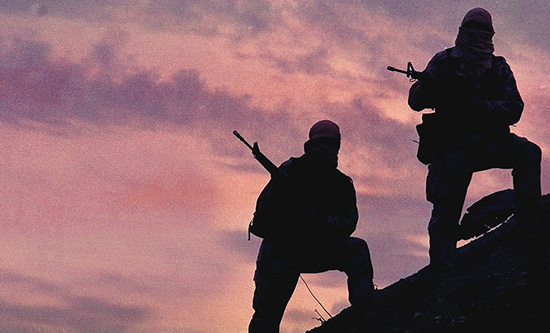
An edition of the BBC documentary Panorama, titled SAS Death Squads Exposed: A British War Crime? has uncovered war crimes carried out by the SAS against unarmed civilians during the war in Afghanistan from 2001 to 2021. The documentary investigated several cases where unarmed civilians were executed during raids by the SAS, as well as the special forces of other countries in the coalition that were sent to Afghanistan to fight the Taliban.
Many of these atrocities were carried out during night raids in villages and followed a similar pattern. SAS troops would be sent into villages based on dubious evidence that Taliban leaders or those working with the Taliban were hiding in a building there, usually with a vague description of the suspect’s appearance. The SAS would raid the building, and march all its occupants outside and detain them. They would then march one detainee back inside, ostensibly to help them search the building. However, when they entered the building, the detainee would be shot dead. SAS accounts would then claim that the detainee produced a weapon, such as a rifle or a grenade, before they were shot. These accounts are not reliable given that the detainees were often restrained before being shot, which itself constitutes a war crime.
This happened when an SAS squadron raided a house in Gereshk, a town in Helmand in November 2010. Everyone in the house had their hands bound and was brought out into the courtyard. Hajj Ibrahim, a former governor who had previously worked alongside the British, was then marched back into the house and shot dead. The squadron claimed that he ‘demonstrated hostile intent’ and was brandishing a hand grenade. However, as he was restrained, there is no way that he could have got hold of a weapon and even special forces have said that grenades are rarely used in this way in Afghanistan. A UN report indicated that Ibrahim was in fact unarmed when the SAS squadron executed him.
Similar killings occurred across Afghanistan. Each time, the victim was shot after being marched into a building and the SAS made the same repeated claims that they pulled out a weapon. On 7 February 2011, nine people were killed by the SAS in Nad Ali and the SAS claimed they came under fire first. Two days later, seven people were shot dead in Khwaja Dad and the SAS again claimed that they came under fire first, although there were far more people found dead than weapons recovered. Coalition forces have been accused of planting weapons in the scene of the crime to make it look as though the victims were armed and an Australian military enquiry found evidence that the Australian Special forces did exactly that.
While the Panorama documentary primarily focuses on crimes carried out by the SAS on behalf of Britain, it also goes into some detail about the Australian Special Forces, including the military dogs used to savagely attack civilians before they are then shot dead by troops. An Australian military enquiry had found that the Australian Special Forces was responsible for the murder of 39 civilians.
The Panorama investigation confirms that British forces perpetrated war crimes against civilians in Afghanistan. The British government has shown no serious intention of investigating these war crimes, although the Ministry of Defence has been compelled to propose ‘an independent review to be led by a senior judge’. The families of those executed by the SAS have rejected this, with the lawyer representing one family saying: that what is proposed is ‘so limited in what it can look at that it cannot bring the truth to light’.
Journalists play an important role in the uncovering of this type of state-sanctioned crime. Atrocities perpetrated by the US in Iraq and Afghanistan were uncovered and published by WikiLeaks in 2010, with the state punishing Chelsea Manning, Julian Assange and others for revealing them. We need to defend fair and free journalism and continue to take a stand against imperialist war.
Seamus O’ Tuairisc




